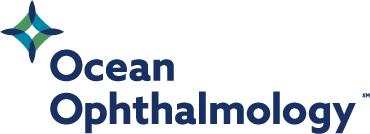Neuro-Ophthalmology


Exploring Neuro-Ophthalmology
Neuro-Ophthalmology is the specialty of both neurology and ophthalmology concerning visual symptoms that relate to the nervous system.
Covering the Basics
Possible problems you may be experiencing that need evaluation include injury to the brain and or/optic nerves- which transmit visual signals from the eyes to the brain.
Why Neuro-Ophthalmology?
This specialty includes treatment for loss of vision that may be caused by trauma, inflammation, strokes, tumors, toxicity, and infections.
Symptoms You Don’t Want to Overlook
Patients who have any loss of visual acuity, visual field, or color vision due to a problem with the brain or optic nerves should be evaluated and treated by a neuro-ophthalmologist as soon as possible. Some of the typical disorders include:
- optic neuritis
- optic neuropathy
- papilledema
- ocular myasthenia gravis
- visual field loss due to tumor, stroke or any unexplained vision loss
- double vision
- headaches
- nystagmus (shaking eyes)
- disorders of the eyelids and pupils such as eyelid or facial spasm


Surgical Solutions To Best Serve You
The scope of neuro-ophthalmology practice also includes optic nerve sheath fenestration surgery for the treatment of idiopathic intracranial hypertension (pseudotumor cerebri–pressure in the head). Patients who have tumors of the pituitary gland or other tumors that may compress the vision pathways in the brain may be referred to a neuro-ophthalmologist to make sure there is no loss of vision. Neuro-ophthalmologists also treat patients who have problems controlling eye movements, resulting in difficulty looking in certain directions or double vision due to misalignment.
The Process
EXAM
Neuro-ophthalmology exam begins with an extensive history of the patient’s problem and a review of any neurological or medical problems that could be relevant.
EVALUATION
Evaluation of the patient’s vision and eye movements by testing the visual acuity, color vision, and visual fields. Special attention is paid to the optic nerve and retina in the back of the eye.
PHYSICAL
Dilating drops will be administered to allow easy viewing of these important structures. The pressure and size of each eye may be checked as well.
NEXT STEPS
Neuro-ophthalmologist will sit down with the patient to discuss their condition and any treatments or management strategies that may be offered.
